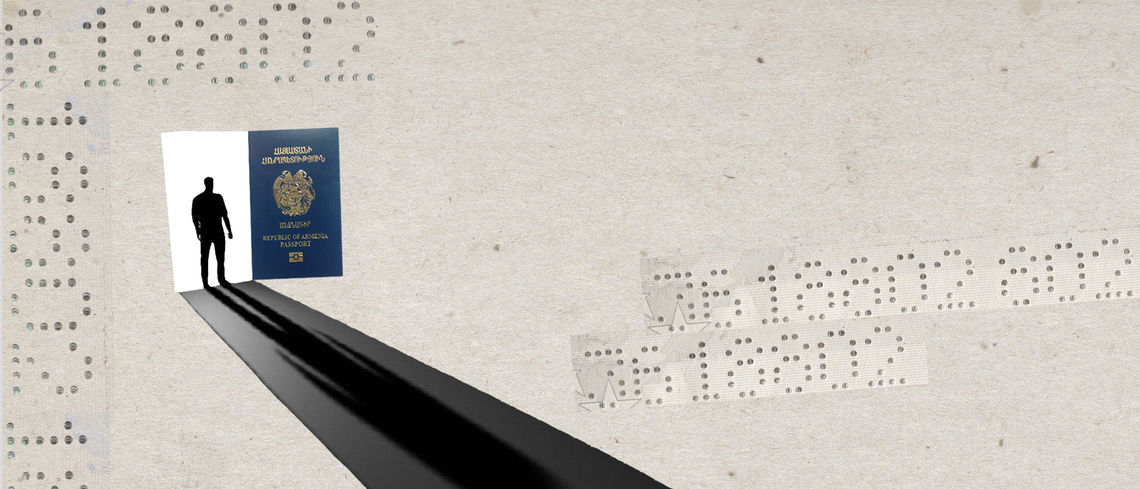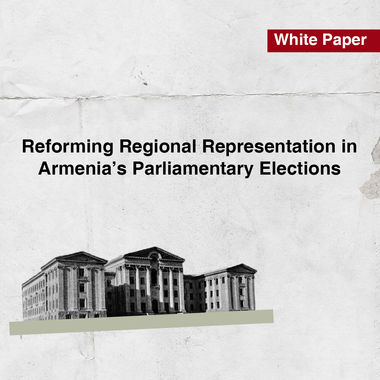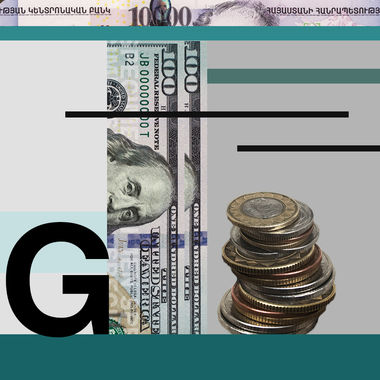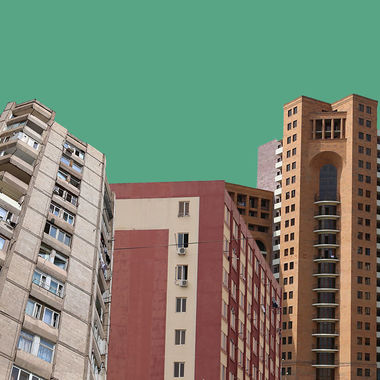Sun Sep 06 2020 · 11 min read
Should Armenian Dual Citizens Be Banned From Running For Office?

By Harout Manougian

Armenia’s first Minister of Foreign Affairs after independence was Raffi Hovannisian. He stayed in the role for almost a year. Throughout that time, he retained his American citizenship. In fact, there was no process in place at the time for him to obtain Armenian citizenship, despite his efforts; authorities kept telling him to wait until the appropriate legislation was drafted.
Armenia passed its first post-independence Constitution in 1995. It included a provision (Article 14) that read “A citizen of the Republic of Armenia may not be a citizen of another state simultaneously.” This prohibition on dual citizenship was an awkward arrangement for such a transnational people. Diasporan Armenians that had repatriated to the homeland were expected to renounce their foreign citizenship if they intended to apply for Armenian citizenship. However, doing so meant they would become temporarily stateless until the application was approved, or potentially permanently stateless if the application was rejected. Conversely, Armenians who had emigrated in the 1990s and sought naturalization in their new home countries were expected to renounce their Armenian citizenship (unless they attempted to keep their acquisition of a second citizenship hidden from Armenian authorities).
The 1995 Constitution also included durational citizenship requirements for the President and Members of Parliament. The eligibility requirements to be elected President of Armenia (Article 50) included:
Be at least 35 years old
Be a citizen of the Republic of Armenia for the preceding ten years
Have permanently resided in the Republic of Armenia for the preceding ten years
Have the right to vote
The eligibility requirements to be elected a Member of Parliament (Article 64) were similar but only required the candidate to be at least 25 years old and a resident citizen for the preceding five years.
Raffi Hovannisian was finally granted Armenian citizenship in 2001. He had requested that he be deemed to have been a citizen since his original application in 1991, presumably to meet the requirements to run for President; however, no such consideration was granted by the Kocharyan administration of the time. He would eventually run for President 12 years later, in 2013.
Armenia’s fourth Foreign Affairs Minister, Vartan Oskanian, who served from 1998 to 2008, was born in Syria. Like Hovannisian, he had also held US citizenship, but he renounced it to take the position in the Armenian government.
During Oskanian’s term, a revised Constitution was passed through a referendum in 2005, which opened up the possibility of dual citizenship for the first time. It kept the durational citizenship requirements for Members of Parliament and the President and added that “The Prime Minister and cabinet ministers shall be citizens of the Republic of Armenia.” (Article 85), without any durational component. Under the 2005 Constitution, it was technically possible for senior government figures to be dual citizens. As long as they were an Armenian citizen, they met the eligibility requirement regardless of any additional citizenships they may have held.
This issue became a topic of discussion in August 2020, as the General Prosecutor’s Office looked into the history of Ruben Hayrapetyan’s (also known by the nickname “Nemets Rubo,” i.e. German Rubo) Russian citizenship. Hayrapetyan had been elected as an MP to Armenia’s National Assembly in 2003, 2007 and 2012. It was revealed that he had obtained Russian citizenship on June 20, 2003, shortly after the parliamentary election on May 25, 2003. Under the 2005 Constitution, there was no incompatibility with Members of Parliament being dual citizens. However, under the 1995 Constitution, which barred dual citizenship altogether, Hayrapetyan should have automatically lost his Armenian citizenship (and become ineligible to remain an MP) when he became a Russian citizen in 2003. The matter is now with the Investigative Committee as part of an ongoing criminal investigation.
Hayrapetyan, who was also the head of the Armenian Football Federation, resigned his MP seat in 2012, after a military doctor was beaten to death by the wait staff at his Harsnakar restaurant, for not adhering to the dress code. Thus, he was no longer an MP when the 2015 Constitution introduced a restriction on senior government figures holding dual citizenship.
Under the 2015 provisions, which are still in force, a Member of Parliament must (Article 48):
Be at least 25 years old
Be solely a citizen of the Republic of Armenia for the preceding four years
Have permanently resided in the Republic of Armenia for the preceding four years
Have the right to vote
Have a command of the Armenian language
The durational citizenship and residency requirement was reduced from five years to four, a language requirement was introduced and, with the addition of the word “solely,” a restriction on dual citizenship was introduced. Article 98 goes on to state that a Member of Parliament will automatically lose their seat upon acquisition of a foreign citizenship.
These eligibility requirements are also extended to the Prime Minister, Deputy Prime Ministers, cabinet ministers, Government Ombudsman and members of the Central Electoral Commission, Television and Radio Commission, Audit Chamber and Board of the Central Bank. The President has an even stricter requirement to have not been a dual citizen for at least the past six years. Judges and the Prosecutor General also cannot be dual citizens while serving, but do not have a restriction on the years preceding their appointment.
Since 2005, all dual citizens have the right to vote in parliamentary elections but the current wording of the Law on Political Parties (which is in the process of being revised) restricts them from donating to a political party. When it comes to municipal elections, even non-citizens who have lived in the municipality for the previous year are allowed to vote and run for a city council seat.
The Tie Between Serving in the Military and the Right to Vote
The right to vote and the right to stand for elected office are closely related but not exactly the same. Akhil Reed Amar, a constitutional law professor at Yale University, asserts that major extensions of the right to vote in the US followed major military conflicts. After broad participation in the war effort, putting one's life on the line to defend the Republic, restricting them from the democratic process became less bearable.
Specifically, there used to be a property requirement to vote in most of the Thirteen Colonies. After the Revolutionary War was fought under the slogan “No Taxation Without Representation,” however, these property requirements were reduced or eliminated state-by-state by the time the US Constitution was ratified in 1789. After the American Civil War, in which African-Americans joined the Union Army to fight the Confederacy, the 14th Amendment was passed, granting them full citizenship (and for males, the right to vote - though this was circumvented in Southern States through Jim Crow Laws for another century). After the First World War, when women worked in munitions factories to help the war effort, the 19th amendment was passed, giving them the right to vote. After the Vietnam War, when 18-year-olds were being conscripted, the voting age was lowered from 21 to 18 under the principle that, if they were old enough to fight for their country, they were old enough to have a say in its future.
In the Armenian context, where there is universal male conscription, obviously dual citizens should also have the right to vote, and they do. They cannot be elected to the National Assembly, however, unless they renounce their other citizenship(s). Thus, there is currently a double standard when it comes to assessing the loyalty of dual citizens. They are deemed loyal enough to carry arms and fight for the country, but not loyal enough to politically steer the country’s direction. A major issue is that they may not even be able to renounce their second citizenship.
You Don't Really Control Whether You Are a Dual Citizen
There are a small number of countries that do not allow renunciation of their citizenship. They include Argentina and Uruguay, which both have significant Armenian communities and grant citizenship to all those born on their territory. Under the current Armenian Constitution, there is nothing that an Armenian born in these countries can do, even after repatriating, acquiring Armenian citizenship and completing his compulsory military service, to become eligible to run in an Armenian parliamentary election. A person cannot control where they are born, but it could have a major impact on their civic rights in Armenia.
There are other countries that theoretically could terminate citizenship but only do so very rarely. Syria and Iran, countries with significant Armenian communities, fall in this category. Although Germany does not normally allow dual citizenship with non-EU countries, they have an exception for such countries, recognizing that renouncing the foreign citizenship may not be feasible.
Other countries may require high fees to renounce their citizenship. The US charges $2350, which is more than six months’ salary for the average Armenian.
There is another worrisome loophole, though, that could potentially have disastrous consequences. It is assumed that a person obtains citizenship at birth (either from their parents or being born in a country) or through their own efforts later in life. However, the current framing of the Armenian Constitution does not consider the possibility that a foreign government could theoretically confer citizenship on a person without their request. That is, imagine a subversive operation where a hostile country, such as Azerbaijan or Turkey, decided to confer their citizenship on the Armenian Prime Minister or Defense Minister. Under the current rules, that person would need to immediately be removed from their post.
If such a fantastical move were to take place today, it may be sorted out within a few days. The ruling My Step Alliance commands a two-thirds supermajority in the National Assembly and could remove the hindrances from the Constitution in short order. However, the situation may be different in the future if opposition parties have enough seats to block the remedy. This low-probability but high-impact vulnerability alone is reason enough to remove the constitutional ban on dual citizens occupying senior government positions, replacing it with a full disclosure of any such alternate citizenships, to allow voters to remain the final judge.
Other Countries' Practice
In Canada, there is no legal ban on Members of Parliament, or even the Prime Minister, holding a second citizenship. However, that does not mean it is not a significant political issue. In the last 15 years, three Leaders of the Opposition (the leader of the second-largest party in parliament) from the three largest political parties have all dealt with the issue. Stephane Dion of the Liberal Party and Thomas Mulcair of the New Democratic Party hold French citizenship. Andrew Scheer of the Conservative Party holds US citizenship. None of the three men went on to become Prime Minister, after their alleged divided loyalties were brought up during election campaigns.
While the issue was apparently relevant for those vying for the country’s top job, it seemed to be a non-issue for Members of Parliament, including those who held cabinet minister posts. An analysis in 2017 (the make-up of Canada’s parliament has changed since then) found that 22 of the 338 MPs held two or even three citizenships. Some were not even certain about their citizenship status with countries in which they were born – 44 were born outside Canada.
In the United States, naturalized citizens cannot be elected President; they must be a US citizen at birth to qualify, by either being born in the United States or having a parent who was a US citizen at the time of their birth. The restriction famously sparked the “birther movement” surrounding Barack Obama’s place of birth, despite documented evidence that he was born in the US state of Hawaii to an American mother. Ted Cruz was born in Canada to American parents and did not renounce his Canadian citizenship until 2014. While his dual citizenship was certainly a political issue, it did not legally prohibit him from running for President. A dual citizen can be elected President of the United States, but a person who has only US citizenship, which they acquired later in life, cannot, even after successfully renouncing any previous citizenship.
Australia is less forgiving. They have a famous constitutional provision (Section 44.i) prohibiting parliamentarians from holding dual citizenship, unless they have taken “reasonable steps” to renounce their non-Australian citizenship. In 2017, it led to a full-blown crisis as 15 representatives lost their seats due to citizenships that they often did not know they held (usually, by being born in a different country). Several then ran for the seat again in the resultant by-election and won it back. Afterward, there was a consensus that the whole thing had been an expensive, unnecessary exercise. As early as the 1980s, there have been calls to remove the provision from the Constitution but doing so requires a referendum, which has never been attempted (and has its own associated costs).
In Armenia’s case, there is no exception for those who have taken “reasonable steps” to renounce their foreign citizenship.
Does Artsakh Citizenship Count?
Armenia is unique due to the situation with Artsakh. Virtually all Artsakh citizens are also citizens of Armenia. Do they count as dual citizens? As Armenia has yet to formally recognize the sovereignty of Artsakh (even though it does directly engage with its government), one could reasonably extrapolate that holding Artsakh citizenship does not represent an inconsistency with the eligibility requirement of being solely an Armenian citizen. However, Armenia’s durational citizenship requirement is accompanied by a durational residency requirement: being “a permanent resident of the Republic of Armenia for the preceding four years.” In the Electoral Code, this requirement is elaborated as meaning that the person must have physically been in Armenia for at least 731 of the preceding 1461 days, unless they were abroad to pursue higher education, complete a military tour of duty or serve as diplomatic staff. Thus, Armenian citizens serving on Artsakh’s frontlines would be fine, but a person who just takes up residence in Artsakh would likely not be able to count the time they spend there toward fulfilling the “permanent residency in Armenia” requirement.
Solutions
The cleanest solution would be to remove the word “solely” in the sections of the Armenian Constitution requiring the person to be “solely a citizen of Armenia,” replacing it with a mandatory disclosure of the person’s place of birth, parents’ citizenship, any citizenships acquired in the past, and any steps taken to renounce foreign citizenships. This approach would keep the issue of assessing one’s loyalty in the political, rather than legal, realm and may even be more robust than existing safeguards. In its election observation mission report following Armenia’s 2018 parliamentary election, OSCE/ODIHR restated that “The restriction for individuals with more than one citizenship to stand for election is at odds with OSCE commitments and the case law of the European Court of Human Rights.”
Furthermore, the wording that terminates someone from a post upon acquiring a foreign citizenship should be replaced with terminating them upon “applying” for a foreign citizenship, preventing foreign governments from being able to hack the Armenian Constitution by granting citizenship without the person’s request.
At the bare minimum, if it is decided that legal barriers need to stay in place, an exception should be provided for cases where a person has taken “reasonable steps” to renounce the citizenship but has been unsuccessful due to the laws and government of a foreign state.
by the same author
Reforming Regional Representation in Armenia’s Parliamentary Elections
By Harout Manougian
This analysis by Harout Manougian assesses the performance of Armenia’s current electoral system in a number of areas, focusing on regional representation. It discusses the unsuccessful proposal to abandon district-based open lists in 2018 and introduces a new compromise between that proposal and the status quo.
Armenia’s Entire Voter List is Available Online: Here’s What It Shows
By Harout Manougian
How common is your Armenian name? How many genocide survivors remain in Armenia? Which are Armenia’s largest cities? An analysis of Armenia’s voter list reveals the answers.
Did You Know Armenia Allows Internet Voting? (But It’s Only For Some)
By Harout Manougian
Internet voting introduces major risks but it is used by a small group of people in Armenian elections.
Banking in Armenia: One Diasporan’s Experience
By Harout Manougian
Armenian banks offer 9% interest on a one-year term deposit. Harout Manougian explains what you need to know before opening an account.
Buying Real Estate in Armenia: One Diasporan’s Experience
By Harout Manougian
Are you interested in purchasing a home in Yerevan? If so, Harout Manougian offers some invaluable information and advice and more importantly, tips on how to avoid the inevitable pitfalls in an unregulated real estate market.








EVN Report welcomes comments that contribute to a healthy discussion and spur an informed debate. All comments will be moderated, thereby any post that includes hate speech, profanity or personal attacks will not be published.